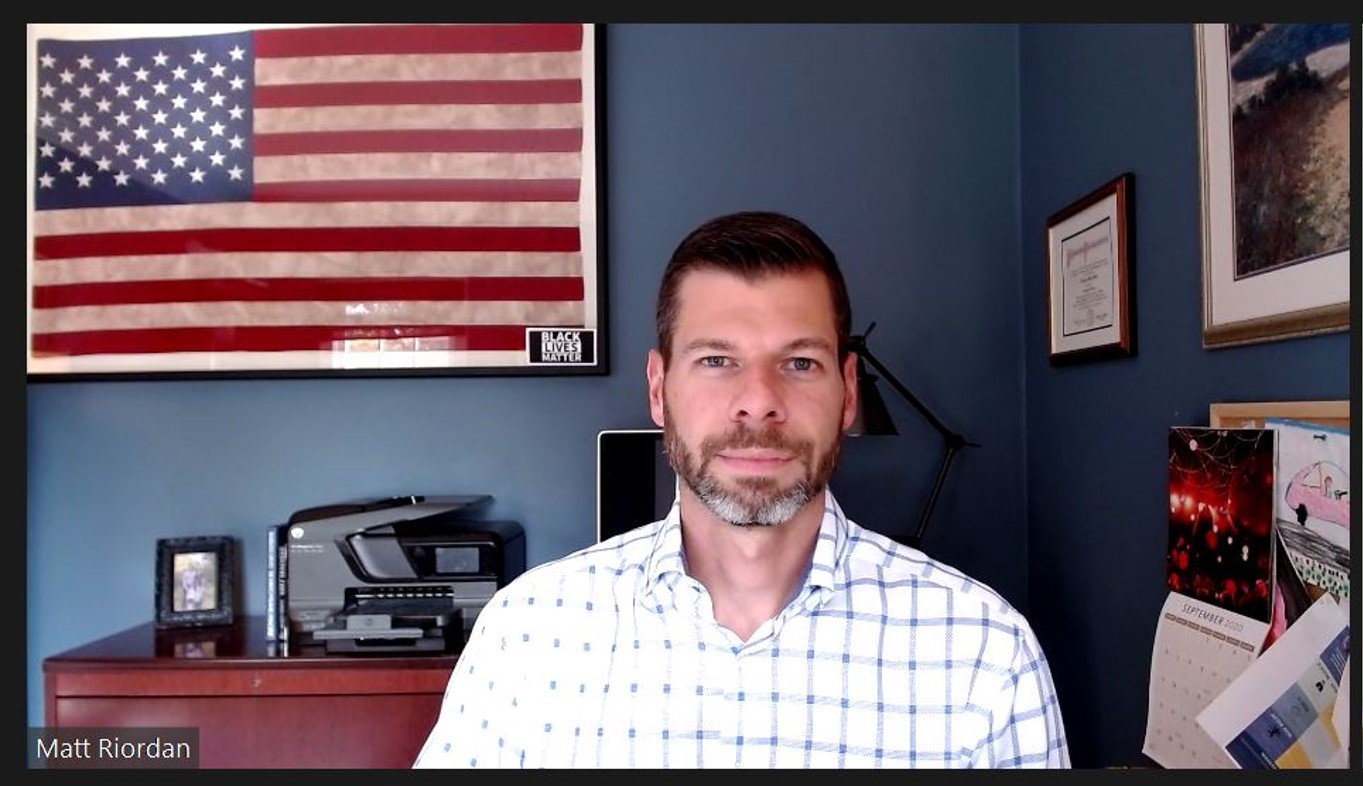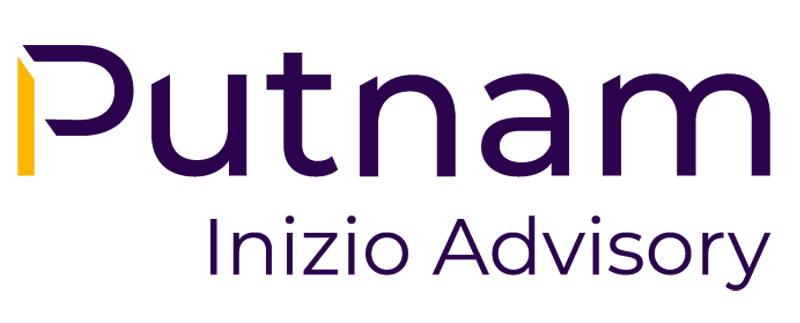Working remotely at Putnam during the COVID-19 pandemic: Part 3
In this series current Putnamites share their experiences about life at Putnam in the age of COVID-19. In our conversations, these Putnamites discussed leadership’s rapid and proactive response from the outset of the pandemic, the different ways in which they and their colleagues have continued to strengthen their bonds, and how Putnam is supporting clients on the frontlines of the fight against COVID-19.
Matt Riordan, a Partner based out of our Boston office, shares some of his thoughts.
Can you please tell our readers a little bit more about yourself—your background, your role at Putnam, how long you’ve been with the firm, and where you’re located?
I’ve been at Putnam for the better part of two decades. I started here in our entry-level consulting position soon after wrapping up my undergraduate education (Boston College, Economics major). I’m one of the Partners here at the firm and in addition to my client management responsibilities I lead our market-facing strategy. I’m part of our Boston team, but now, like everyone else I’m working from home.
How has the ongoing pandemic been for you? First, have you been staying safe and healthy? What was Putnam’s response like?
I’m very fortunate, my family and I have all stayed safe throughout the pandemic. Being so close to the medical field we know how serious this is and we take all recommended precautions seriously. There have certainly been a lot of challenges through this period, but I’ve been inspired by the resilience of my teammates across our firm who have simultaneously remained focused on project work and reimagined what engagement and community mean to ensure the connections that bind us as a firm remain strong.
At what point during the pandemic did Putnam transition to remote work? How did the firm facilitate the transition and what kinds of resources, directives, and support were Putnam employees offered?
We switched to remote work a little ahead of the curve, right around March 10th, it helped that we have a number of team members here with deep knowledge in infectious disease and we turned to them to for advice and guidance. We wanted to minimize the risk of any of our employees getting sick and do our part to flatten the curve. The transition was fast and the response of the firm has evolved over time. The immediate response focused on ensuring the health and safety of our team, and then transitioned to making sure everyone had what they needed to be productive at home including providing reimbursement to purchase home office equipment. We placed a major emphasis on using video-conferencing and technology platforms to allow teams to engage with each other. As the pandemic carried on the focus shifted to supporting mental and physical health, and identifying new ways to engage each other. That response continues to evolve as e look at several more months of remote work ahead. Our firm just came out with a new set of temporary benefits for Q4 that are aimed at continuing to provide support in some really targeted ways ranging from assistance identifying caregivers, to adding a few extra days off this year to allow people to unplug.
How would you describe leadership’s handling of the pandemic? What was communication like, what sort of directives were issued, and how did the firm’s response and actions affect your experience of the pandemic?
I think our leadership team has done a great job of handling the situation. Right from day one there has been a huge emphasis on open and honest communication. At the start of things we had weekly meetings where our CEO would provide us with an update of how the business was doing, what the outlook was, what new initiatives and programs were being put in place in real time, and answer any and all questions that our team members had. There was a lot of honesty and openness from everyone, including leadership. Often there weren’t great solid answers to questions around what the future held, but there was encouragement to focus on what we could control, to work together as a team, and to try and make our own luck in these challenging times.
What do you believe was the key to Putnam successfully navigating the unprecedented turbulence brought upon by the pandemic?
Putnam has been able to maintain and even grow our business through this pandemic and that is a testament to two things. First, it’s a testament to the outstanding track record we have with our clients, delivering incredible value by focusing not only on the project at hand but on developing long-term trust-based relationships. When our clients were facing their own sets of challenges, both personal and professional, they knew they could count us to deliver and have continued to seek our support. And second, it’s a testament to the amazing team we have here at Putnam. We place an outsized emphasis on finding the “fit” with our hires, people who are smart and hard-working, but also display humility, grit, and a team-first attitude. These last few character traits have really shown in so many incredible ways throughout this pandemic. We’ve all been there for each other in times of need and I’m really proud to be a part of this team.
One of the elements of life at Putnam that consistently stands out is the firm’s outstanding firm culture—in fact, Putnam Associates ranked No. 3 last year in Vault’s Best Consulting Firms for Firm Culture. Given how integral culture is to your firm, can you please tell us how the pandemic has affected that? How has Putnam worked to preserve the core values of the firm’s culture, as well as an overall sense of connectedness, while everyone is working remotely?
Culture really is central to what Putnam is. As a consultancy, our product is our people and the culture is what defines the quality of that product. Working remote is challenging, despite everything the firm is doing to make it as least disruptive as possible. We get a lot of energy and fulfillment working alongside each other, in the unplanned interactions that happen in an office. So we have been conscious about cultivating those interactions as best we can in a remote environment, for example supporting virtual coffee dates and happy hours. Each of our offices has planned some appropriately distanced outdoor meetups along the way to help foster connections, and we’ve had some fun firmwide contests (e.g., workout challenges and voting on the cutest Putnam pet). We’ve also taken some of our big training and team building programs and shifted those to virtual environments rather than scrapping them altogether. But the most important element has been an emphasis that everyone go the extra mile to check in on their team members and colleagues and make sure we are there for each other whenever someone needs it.
As a life sciences consultancy, Putnam is in an interesting position in that many of the biopharma, diagnostic, and medical device clients you work with are likely to be on the frontlines of the fight against COVID-19. Without divulging any confidential information, can you talk about what that’s been like? Are you involved in any projects with clients that directly pertain to the pandemic? What sorts of issues and opportunities are you encountering? How is Putnam serving clients that may be working to develop a vaccine, more efficient testing, or any number of pandemic-related initiatives?
Putnam has been involved in several project directly involved in the fight against COVID-19. It’s a tremendous reminder that the work we do is important and has a real impact on people lives. When our clients have turned to us for support on their most important projects like these it’s a great reflection of how valued our team is.
The pandemic is not, by any means, “over”—although many cities, states, and countries around the world seem to have turned the corner and “flattened the curve.” As much of the world emerges from the worst of the pandemic’s first wave, we’re beginning to get a glimpse into what the new normal may look like.
What does a post-COVID-19 world look like for Putnam Associates? I ask this with respect to the firm’s internal dynamics—the logistics of continuing to work from home vs. returning to the office—as well as the business outlook.
Being able to work side by side with each other, to share learnings and ideas, to build relationships outside of project teams is really important and valuable individually and too the firm as a whole. Once it is safe to do so, and not a moment before, we will transition back to a primarily in-office model.
September usually marks the beginning of recruiting season for many consultancies, although these initiatives look drastically different this year. How has COVID-19 impacted Putnam’s recruitment efforts?
We’re in the midst of recruiting our largest class ever and we’re doing it all virtually. The platforms have changed but what we’re looking for has not.
Do you have any advice for professionals in the industry—based on your own experiences—on how to navigate these difficult times? Do you have any advice for job seekers looking to break into consulting in the current climate?
Perhaps the most important pieces of advice are some of the old standards – take it one day at a time, count your blessings, and focus on what you can control. Having a long-term view certainly helps; even though it seems like this will go on forever there is a light at the end of the tunnel.

Jump to a slide with the slide dots.
Virtual Path to Putnam: Life Science Consultant
Access Putnam's on-demand Path to Putnam Info Session for 2024/2025 Life Sciences Consultant roles. Learn about our mission, growth, and application..
Read morePutnam welcomes new Partner to the Medical & Scientific Affairs Practice
Putnam is pleased to welcome a new Partner to the team, Rudiger Papsch, based in the UK, who will be a central expert in our Medical & Scientific ....
Read morePutnam announces new Partner promotions
Putnam, leading scientific and strategic consulting partner, is thrilled to announce Scott Briggs and Thomas Marder have been promoted to Partner...
Read more